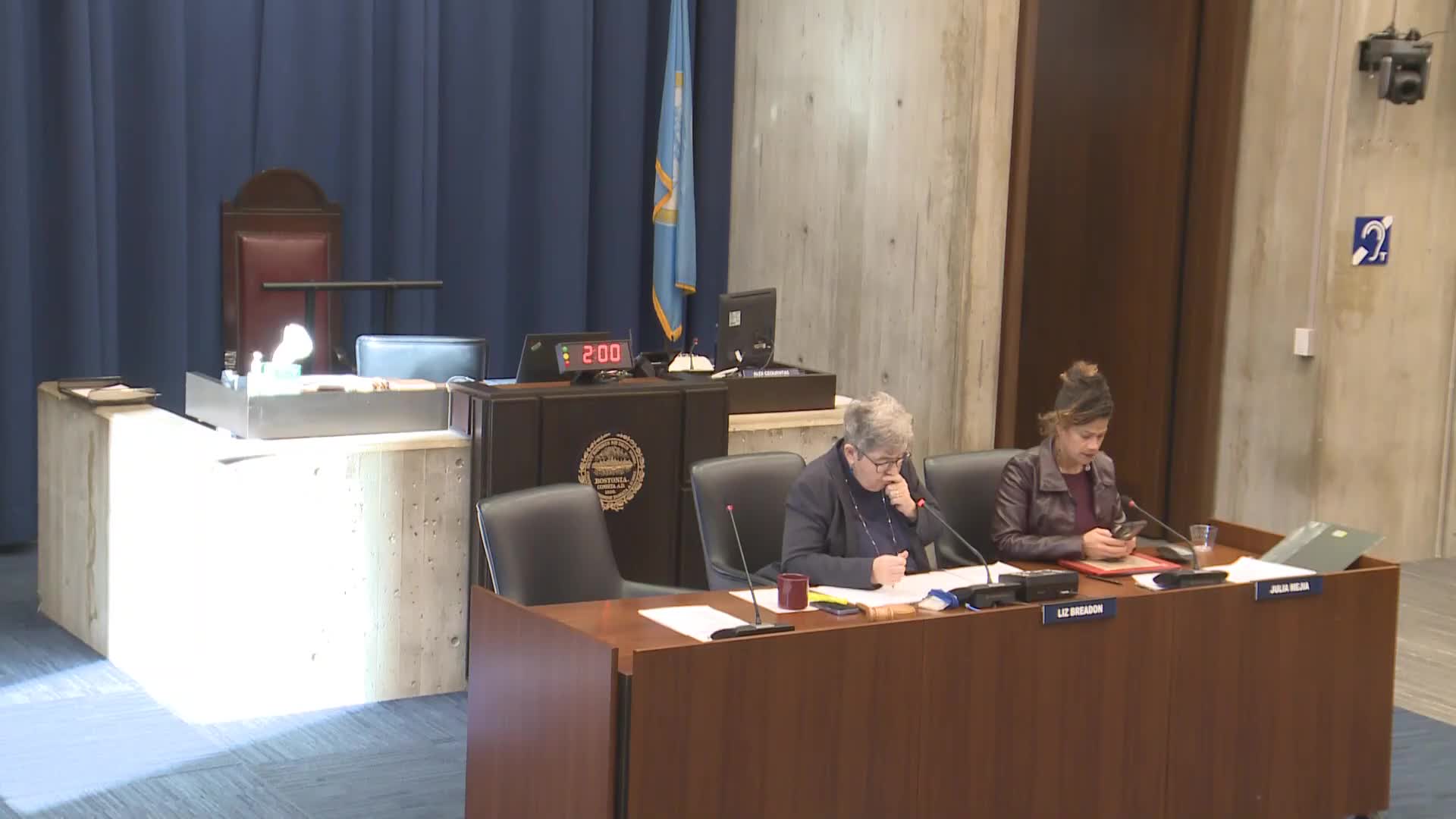Public testimony at hearing spotlights condo defects, foreclosures and Tent City governance concerns
Get AI-powered insights, summaries, and transcripts
Subscribe
Summary
Several residents used the council hearing to report long-running condo building defects that have driven owners toward foreclosure, and to press the city for oversight and remedies at Tent City after allegations of mismanagement and disputed refinancing proceeds.
During public testimony and a second panel at the Oct. 9 hearing, residents described two distinct but related sets of problems: market‑rate and affordable condominium owners facing large assessments, construction defects and blocked resale or refinancing; and longstanding governance and financial complaints at Tent City, a 269‑unit affordable complex developed under a 99‑year lease with the city.
Sonal Patel, a homeowner who testified by video, described a newer condominium development in South Boston where many owners discovered "massive infiltration issues and water leaks" after purchase. Patel said the association’s litigation and repairs have left owners unable to refinance or sell and said she faces foreclosure despite performing mortgage payments. "I am now paying $4,600 because my bank I can't even work with my bank on my mortgage," Patel told the committee.
Other condo owners in public testimony described being charged large supplemental assessments and limited transparency from management companies and trustees. A witness who identified herself as Helen (Wei Chen) told the committee she had paid more than $24,700 in supplemental fees between July 2022 and August 2025 and alleged unsafe conditions and poor communication.
Tent City testimony and governance questions Local residents and long-time South End activists, including Heather Cook, described multiple concerns at Tent City: alleged misappropriation of refinancing proceeds, large-scale evictions tied to management change, an absence of clear executive oversight for the corporation that manages the property, and a history of attorney-general and other legal activity. Cook told the committee she had led resident protests and organized petitions calling for transparent accounting of capital funds and better management oversight.
The administration said it has been engaged with Tent City on capital and governance matters and that lenders and city staff have been meeting with the corporation to discuss capital needs. Cook and resident organizers said they have documentation they want the council and the city to review and asked for further city oversight and accountability.
Why this matters The testimonial reports show how construction defects and opaque association governance can transform ownership into a financial risk and how long‑running governance issues at subsidized properties can leave residents without clear remedies. Councilors asked the administration to provide records and to explain what oversight the city has under the Tent City lease and other agreements.
Next steps Committee members asked the administration to pass along available documentation, to provide updates on any Attorney General or court activity that affects outcomes, and to work with resident groups to identify technical-assistance and translation needs as they attempt to stabilize buildings and preserve residents’ housing.
